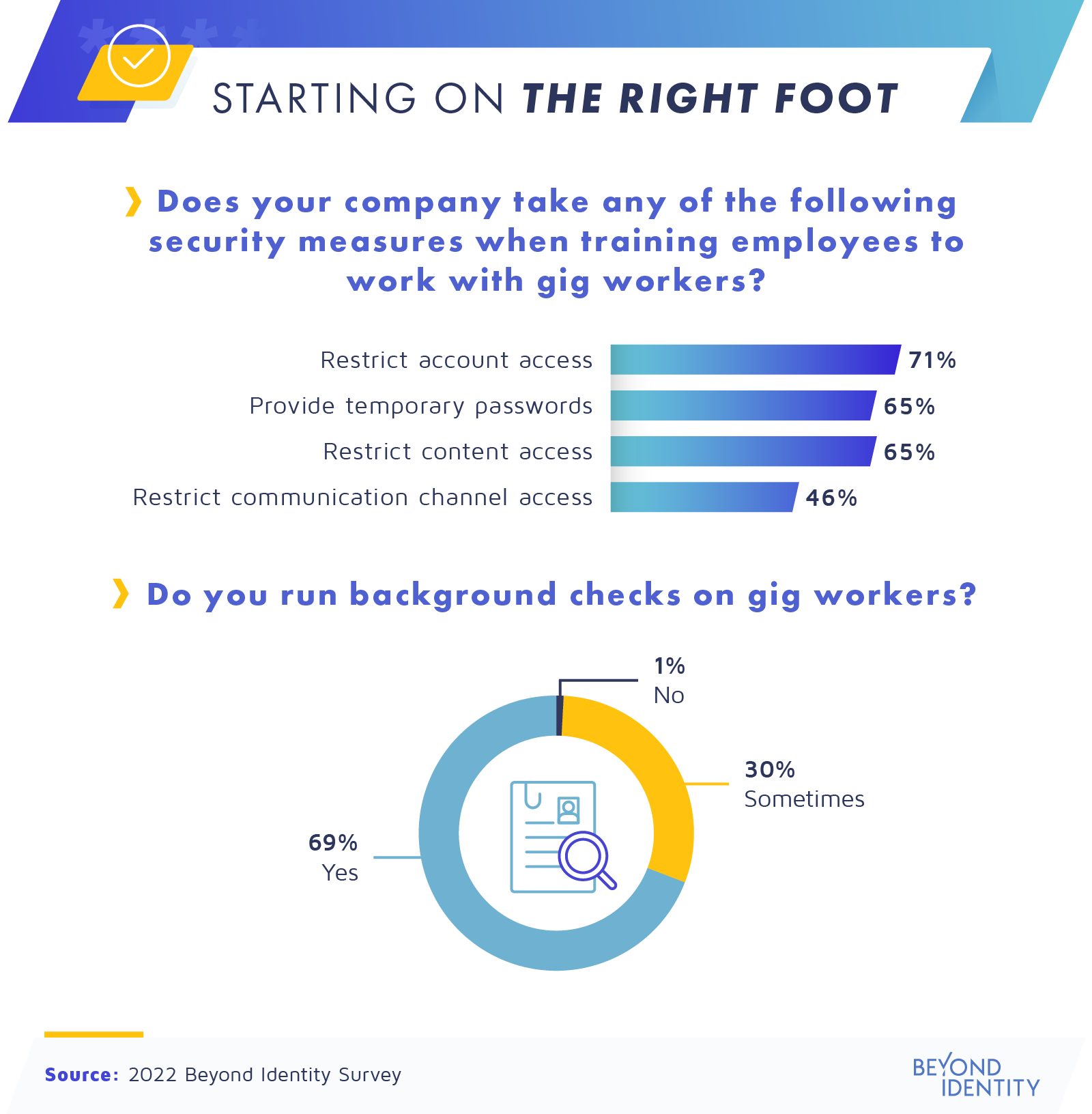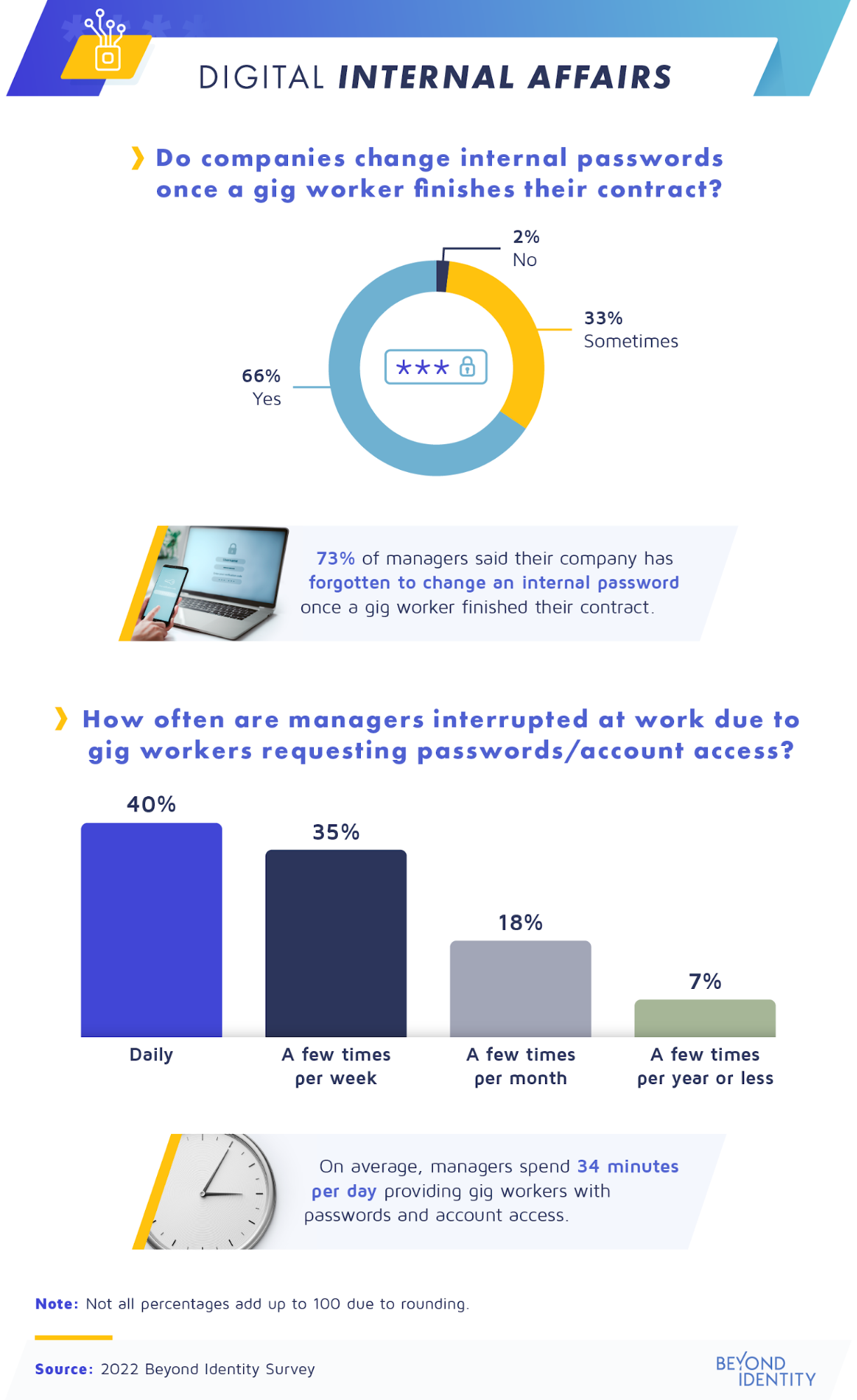The gig model has become a popular choice for many companies because of the fact that this is the sort of thing that could potentially end up getting the workers that they need without them having to pay for perks such as health insurance or paid days off. Instead, they can pay their workers precisely for the amount of work that they are doing, and that has the potential to keep all parties happier than might have been the case otherwise.
With all of that having been said and now out of the way, it is important to note that the gig economy is not without its fair share of problems. One such problem is a heightened cybersecurity risk. Whenever a company hires a contractor, they need to give them access to a certain quantity of sensitive data. 87% of these contractors say that they still have access to client accounts after they have completed their assigned tasks, as per Beyondidentity. This can cause some serious cybersecurity threats down the line if measures are not taken to mitigate this issue.
With 59 million Americans now working freelance, gig works now comprise a full third of the American work force. This is still a relatively new phenomenon, so all concerned parties are getting used to the ins and outs of this way of doing business. 71% of these contractors have access to financial accounts, 64% have access to communication channels and 63% are able to access operational accounts to get the job done.
Other areas are at risk as well. 47% of gig workers need to be able to open up social media accounts, cloud accounts are necessary for 42% of workers, 32% get access to their client’s email accounts and there is also the 22% that are responsible for project management.
Also, while 62% of gig workers said that they are fully familiar with a client’s security protocols, as many as 34% said that they are only somewhat familiar. 4% even said that they are not familiar with their client’s security protocols at all.
This means that there are hundreds of thousands of gig workers in America alone who are directly causing cybersecurity disruptions. That’s not even counting the tens of millions who are only somewhat familiar and are therefore opening up their clients to all sorts of cyber attacks and security woes.
Also, being aware of security restrictions and protocols is not the same as adhering to them. 41% of contractors admitted that they only follow these protocols sometimes. 24% said that they follow them often but not always, with 34% saying that they always stick to the protocols no matter what.
A company getting hacked after hiring a contractor is quite serious. 64% reported unauthorized purchases and a similar proportion stated that their money had been stolen. The theft of user IDs and passwords was also the result of 60% of hacks, and 46% of companies that got hacked found that their credit rating had been destroyed.
Any company that is looking to collaborate with gig workers should take steps to reduce the cybersecurity threats that can so often ensue. Failing to do that might make the gig economy unsustainable in the long run.
Read next: 66% of Americans Got Hacked While Playing Video Games According to This Report
by Zia Muhammad via Digital Information World





No comments:
Post a Comment